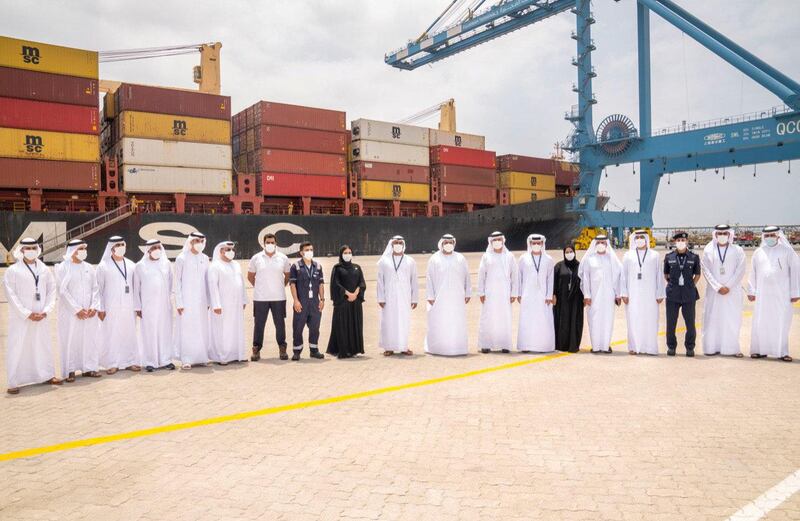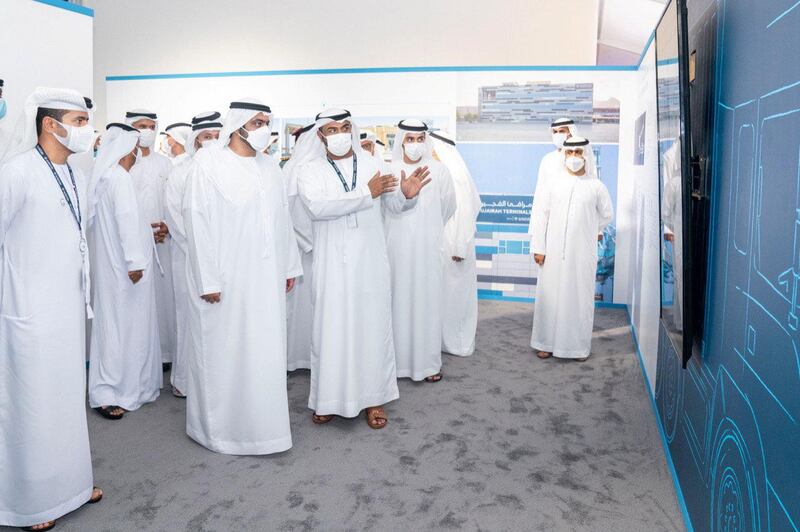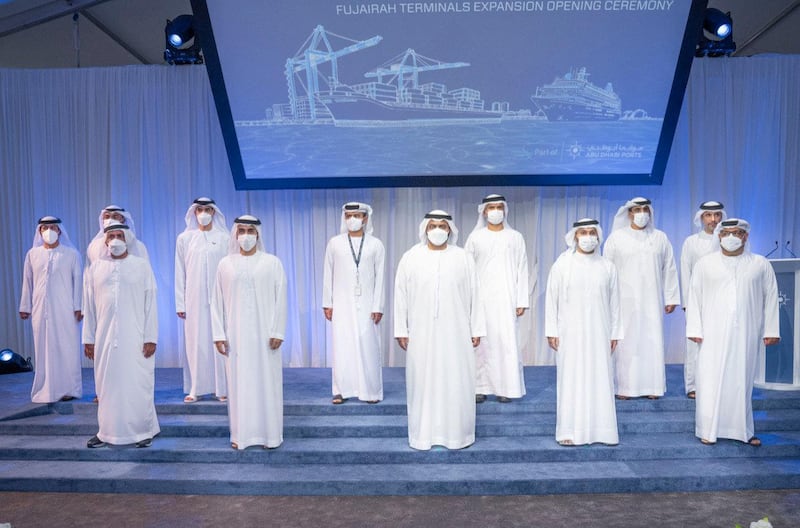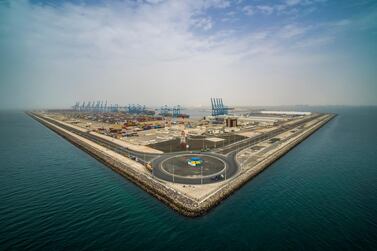An expanded container terminal at Fujairah Port was inaugurated on Sunday after an investment of Dh1 billion ($272m).
A number of new structures have been added at the terminal operated by Abu Dhabi Ports to boost its cargo-handling capacity and accommodate larger vessels, according to officials.
The completion of the expansion works, which began three years ago, will increase the terminal’s general cargo throughput to 1.3 million tonnes and container capacity to 720,000 twenty-foot equivalent units, or TEUs.
The size of the container terminal has been expanded to 110,000 square metres, with a further 25,000-square-metre multipurpose area also added to handle general cargo and roll-on, roll-off, or Ro-Ro, items, according to state news agency Wam.
The work also involved extending the quay wall from 760 metres to 1,000 metres while the approach was deepened from 12 metres to 15 metres to allow the port to handle larger vessels.
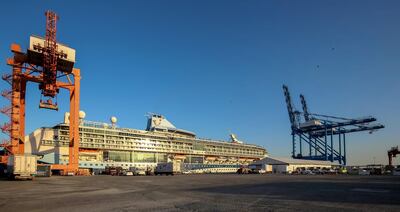
Sheikh Mohammed bin Hamad Al Sharqi, Crown Prince of Fujairah, opened the expanded port terminal yesterday.
"The emirate of Fujairah has become a leading international maritime transport centre ... enabling it to attract investment and support the national sustainable development process,” said Sheikh Mohammed.
Fujairah Port is strategically important. It is located 70 nautical miles from the Strait of Hormuz, a narrow waterway carrying a fifth of the world’s traded oil.
“Over the past few years, we have invested heavily in several development projects aimed at increasing not just the terminal’s cargo-handling capacity but its ability to handle specific types of cargo as well,” said Abdulaziz Al Balooshi, chief executive of Fujairah Terminals.
“These investments have had an enormous impact on general cargo capacity, increasing what we can handle by more than a million tonnes.”
Abu Dhabi Ports is expanding the terminal after a 35-year concession agreement was reached with Fujairah Ports in 2017.
As part of the deal, the two entities set up Fujairah Terminals, a new operational arm wholly owned by Abu Dhabi Ports, to boost existing infrastructure and handle all general container cargo, Ro-Ro items and cruise ships at the port.
“As the UAE’s only multipurpose port on the eastern coast, Fujairah is well placed to become a GCC trade hub linking the flow of commerce between the Indian subcontinent, the Red Sea and East Africa,” said Saif Al Mazrouei, head of the ports cluster at Abu Dhabi Ports during an online media briefing about the port’s expansion.
“Considering all our new innovations and infrastructure improvements to date, today we can say that Fujairah Terminals’ transformational journey in becoming a global facilitator of trade and logistics is truly under way.”
The terminal will have the capacity to handle at least 100 vessels annually, up from 60 last year, he said.
There are also plans for the new terminal to become “a leader in cruise destination in the region”, said Mr Al Balooshi.
“Despite the negative impact of Covid-19 on the global cruise market, Abu Dhabi Ports continued to work closely with the government of Fujairah to develop its capabilities in facilitating the arrival of cruise vessels.”
The cruise business in Fujairah is expected to resume during the third quarter after services were disrupted due to Covid-19, officials said.
Abu Dhabi Ports is part of ADQ, one of the region’s largest holding companies that owns stakes in companies spanning key sectors of the economy including media, utilities, aviation and health care.
The ports operator reported revenue of $933 million in 2020, a 24 per cent increase on the previous year. It owns and manages 11 ports and terminals in the UAE and Guinea.
Earlier this year, Abu Dhabi Ports raised $1bn through the issuance of a 10-year bond to help it achieve "an ambitious capital expenditure programme" over the next 10 years.

